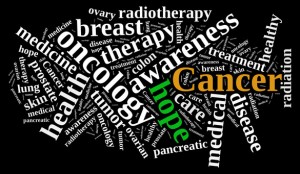At an early age, women are taught to be breast cancer self-aware, and that by a certain age, one should start doing breast self-examinations and have regular checkups. While there is plenty of awareness going on for breast cancer, not the same amount of attention goes to ovarian cancer, which is apparently a silent killer that’s more difficult to catch.
Breast and Ovarian Cancer: Sister Cancers
Breast and ovarian cancer are known as sister cancers. Over 2.6 million women in America alone have been diagnosed with breast cancer, and around 5 to 10% of these women carry mutations that increase their risk for developing ovarian cancer. Unlike breast cancer, symptoms associated with breast cancer are very subtle, which is why it is quite difficult to detect. Some symptoms are very common physical issues that happen to anyone at any given time – bloating, abdominal pain, difficulty eating and urinary symptoms.
Apart from that, unlike breast cancer, which has an effective screening test, ovarian cancer does not have any effective screening method. Thus it is important to identify your potential risks through other methods.
Breast and Ovarian Cancer Risks
Women diagnosed with breast cancer should take precautionary measures and take preventive steps, as they are also at risk for ovarian cancer. While the risk is small, it’s still there.
Other than that, here are also factors that link breast and ovarian cancer that you should be on the lookout for, since they increase your chances of developing breast cancer.
-Personal diagnosis of breast cancer before the age of 50
-A close blood relation who has had breast cancer before the age of 50
-A close blood relation with ovarian cancer at any age
-A close blood relation with male breast cancer
-Two or more close blood relations on the same side of the family who has had breast cancer before the age of 50 or ovarian cancer at any age
Answering yes to any of these factors mentioned above increases your risk of developing ovarian cancer. If this is the case, then you may want to undergo genetic testing to check for the BRCA1 or BRCA2 gene mutations. While testing positive for these gene mutations do not entirely predict if you will develop cancer, they can tell you if you are at risk for developing them, which will at least give you an idea that you need to keep yourself healthy, be on the lookout for hereditary breast and ovarian cancer symptoms and take pre-emptive steps to detect the cancers early.



